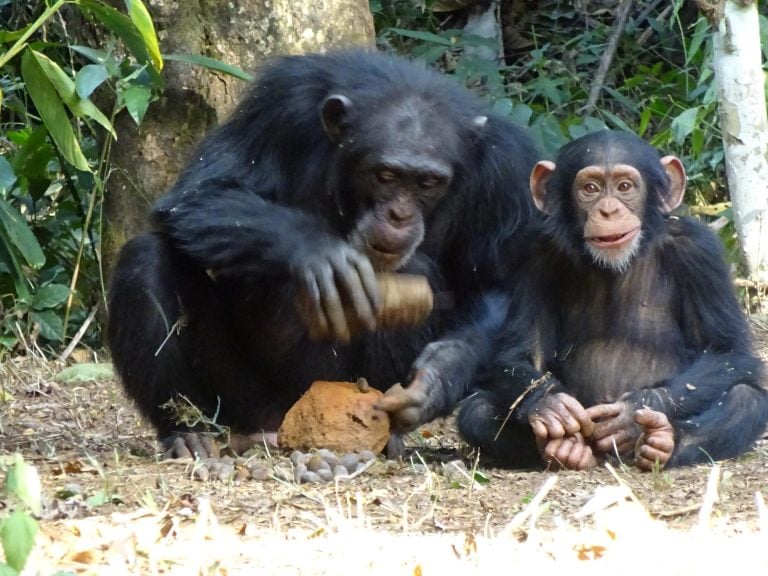A groundbreaking study has shed new light on the evolutionary origins of human behavior, revealing that our closest living relatives, chimpanzees, possess a surprising level of cognitive sophistication. Researchers have found that chimpanzees organize their actions into complex sequences, similar to those used in human language and tool making.
Unlocking the Secrets of Human-Like Behaviors
The study, published in the journal PeerJ, analyzed the tool use behaviors of wild chimpanzees in Guinea, West Africa. The researchers found that chimpanzees use a variety of tools, including hammers and anvils, to crack open nuts. But what’s remarkable is that they organize their actions into complex sequences, similar to those used in human language and tool making.
Complexity in Chimpanzee Tool Use
The researchers recorded over 8,260 actions performed by chimpanzees as they cracked open nuts. Using advanced statistical models, they found that the chimpanzees’ actions were organized into repeatable “chunks,” similar to those used in human language and tool making. This suggests that chimpanzees possess a level of cognitive sophistication that is similar to that of humans.
Implications for Evolutionary Biology and Conservation
The study’s findings have significant implications for our understanding of human evolution and the conservation of chimpanzees. The researchers suggest that the ability to organize actions into complex sequences may have evolved in our common ancestors with chimpanzees, and was then further elaborated on during subsequent human evolution.
What Does This Mean for Human Evolution?
The study’s lead researcher, Dr. Elliot Howard-Spink, said: “The ability to flexibly organize individual actions into tool use sequences has likely been key to humans’ global success. Our results suggest that the fundamental aspects of human sequential behaviors may have evolved prior to the last common ancestor of humans and chimpanzees, and then may have been further elaborated on during subsequent hominin evolution.”
Conclusion
The study’s findings provide a fascinating glimpse into the cognitive abilities of our closest living relatives, and shed new light on the evolutionary origins of human behavior. By studying the complex behaviors of chimpanzees, we can gain a deeper understanding of the evolution of human cognition and behavior.
Share Your Thoughts
What do you think about the study’s findings and their implications for human evolution? Share your thoughts in the comments below!
Reference
“Sequential organization of tool use in wild chimpanzees” by Elliot Howard-Spink et al., published in the journal PeerJ.

















